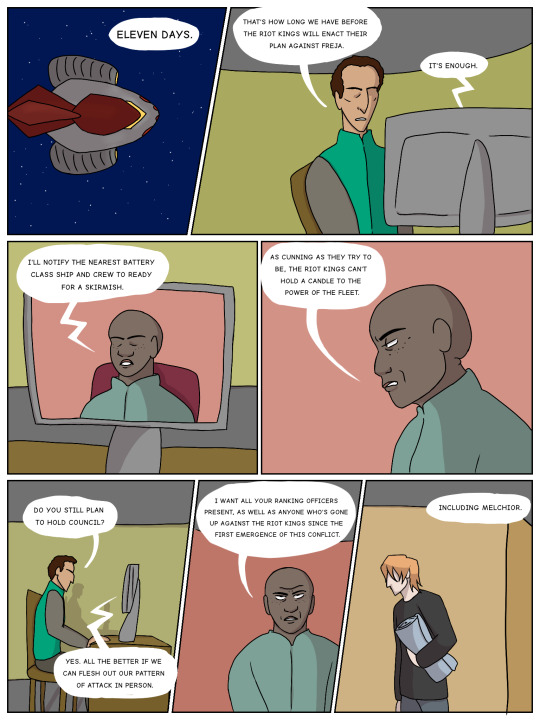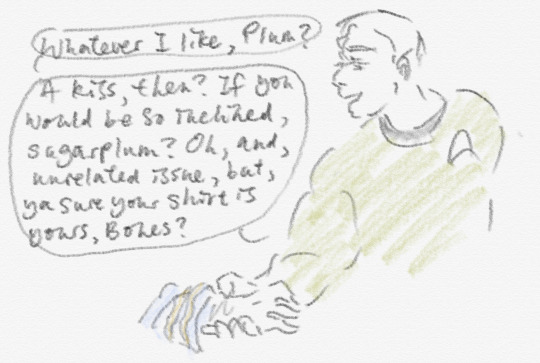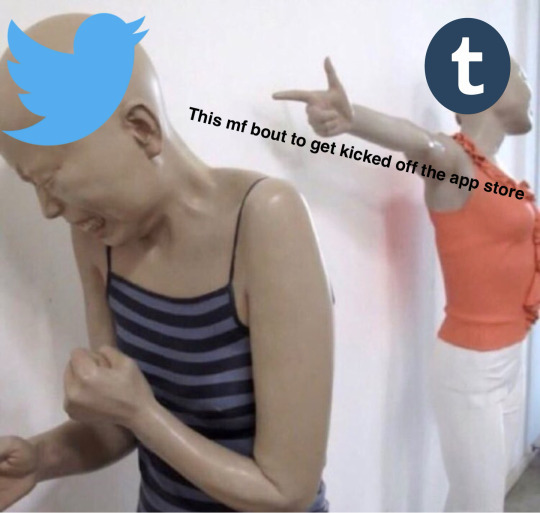#store app
Text
woke up and someone spilled vanilla extract all over my dash, so as punishment you strange little beasties are getting all the VANILLA FACTS i know:
vanilla is the 2nd most expensive spice in the world (2nd to saffron)
which is why more than 99% of what we call "vanilla extract" is actually vanillin (vanilla's dominant flavor compound) and is not extracted from real vanilla.
luckily, even professionals struggle to tell the difference when it comes to things like baked goods. but there is a distinct difference in non-heat treated products like vanilla ice cream. real vanilla has a more complex, individualized flavor profile.
why is vanilla so expensive? because it is a ridiculously delicate & demanding crop. complete primadonna.
vanilla beans come from vanilla orchids. these crazy flowers bloom for A SINGLE DAY and have to be HAND-POLLINATED in a process that is exhausting, delicate, and requires specialist knowledge passed down over generations.
then, if you're lucky, you get vanilla beans.
which then require months of further specialized treatment.
the entire process takes about a year and can go wrong at any stage


vanilla has been cultivated for over 800 years (possibly much longer). the first known cultivators are the Totonac, an indigenous people of Mexico.
the Aztecs used it as a sweetener to balance out the bitter taste of cocoa. it was popular in a drink called xocolatl--the precursor to modern hot chocolate!
it is only pollinated by a very specific orchid bee!!!
which is why no fruit could be grown outside of Mexico until the 1800s
Edmond Albius, born into slavery, invented the pollination method we still use today--launching a global industry when he was just 12 years old.
today, the majority of the world's vanilla is grown in Madagascar
if you want real vanilla, read the labels carefully--it's harder to find than you think!



in conclusion, those tiny black specks you see in fancy vanilla ice cream? those are vanilla bean seeds! itty bitty orchid seeds!!! they are delicious and also a PRISSY BITCH!
(src)
#Vanilla Extract#i open the tumblr app and immediately my nostrils are invaded by the overwhelming stench of vanilla#also if you want real vanilla extract at a discount: check out stores like HomeGoods TJMaxx Marshalls etc#the foodstuffs section tends to have fancy nonperishables for much cheaper than upscale grocery stores#you can get things like saffron truffles fancy oils at surprising prices#still expensive but like. 50% cheaper#or just shoplift if that's your thing i won't tell you how to live your life#did i just spend an hour writing this? yes. why did i do that? i don't KNOW
61K notes
·
View notes
Text
An Epic antitrust loss for Google

A jury just found Google guilty on all counts of antitrust violations stemming from its dispute with Epic, maker of Fortnite, which brought a variety of claims related to how Google runs its app marketplace. This is huge:
https://www.nytimes.com/2023/12/11/technology/epic-games-google-antitrust-ruling.html
The mobile app store world is a duopoly run by Google and Apple. Both use a variety of tactics to prevent their customers from installing third party app stores, which funnels all app makers into their own app stores. Those app stores cream an eye-popping 30% off every purchase made in an app.
This is a shocking amount to charge for payment processing. The payments sector is incredibly monopolized and notorious for its price-gouging – and its standard (wildly inflated) rate is 2-5%:
https://pluralistic.net/2023/08/04/owning-the-libs/#swiper-no-swiping
Now, in theory, Epic doesn't have to sell in Google Play, the official Android app store. Unlike Apple's iOS, Android permit both sideloading (installing an app directly without using an app store) and configuring your device to use a different app store. In practice, Google uses a variety of anticompetitive tricks to prevent these app stores from springing up and to dissuade Android users from sideloading. Proving that Google's actions – like paying Activision $360m as part of "Project Hug" (no, really!) – were intended to prevent new app storesfrom springing up was a big lift for Epic. But they managed it, in large part thanks to Google's own internal communications, wherein executives admitted that this was exactly why Project Hug existed. This is part of a pattern with Big Tech antitrust: many of the charges are theoretically very hard to make stick, but because the companies put their evil plans in writing (think of the fraudulent crypto exchange FTX, whose top execs all conferred in a groupchat called "Wirefraud"), Big Tech keeps losing in court:
https://pluralistic.net/2023/09/03/big-tech-cant-stop-telling-on-itself/
Now, I do like to dunk on Big Tech for this kind of thing, because it's objectively funny and because the companies make so many unforced errors. But in an important sense, this kind of written record is impossible to avoid. Any large institution can only make and enact policy through administrative systems, and those systems leave behind a paper-trail: memos, meeting minutes, etc. Yes, we all know that quote from The Wire: "Is you taking notes on a fucking criminal conspiracy?" But inevitably, any ambitious conspiracy can only exist if someone is taking notes.
What's more, any large conspiracy involving lots of parties will inevitably produce leaks. Think of this as the corollary to the idea that the moon landing can't be a hoax, because there's no way 400,000 co-conspirators could keep the secret. Big Tech's conspiracies required hundreds or even thousands of collaborators to keep their mouths shut, and eventually someone blabs:
https://www.science.org/content/article/fake-moon-landing-you-d-need-400000-conspirators
This is part of a wave of antitrust cases being brought against the tech giants. As Matt Stoller writes, the guilty-on-all-counts jury verdict will leak into current and future actions. Remember, Google spent much of this year in court fighting the DoJ, who argued that the company bribed Apple not to make a competing search engine, paying tens of billions every year to keep a competitor from emerging. Now that a jury has convinced Google of doing that to prevent alternative app stores from emerging, claims that it used these pay-for-delay tactics in other sectros get a lot more credible:
https://www.thebignewsletter.com/p/boom-google-loses-antitrust-case
On that note: what about Apple? Epic brought a very similar case against Apple and lost. Both Apple and Epic are appealing that case to the Supreme Court, and now that Google has been convicted in a similar case, it might prompt the Supremes to weigh in and resolve the seeming inconsistencies in the interpretation of federal law.
This is a key moment in the long project to wrest antitrust away from the pro-monopoly side, who spent decades "training" judges to produce verdicts that run counter to the plain language of America's antitrust law:
https://pluralistic.net/2021/08/13/post-bork-era/#manne-down
There's 40 years' worth of bad precedent to overturn. The good news is that we've got the law on our side. Literally, the wording of the laws and the records of the Congressional debate leading to their passage, all militate towards the (incredibly obvious) conclusion that the purpose of anti-monopoly law is to fight monopoly, not defend it:
https://pluralistic.net/2023/04/14/aiming-at-dollars/#not-men
It's amazing to realize that we got into this monopoly quagmire because judges just literally refused to enforce the law. That's what makes one part of the jury verdict against Google so exciting: the jury found that Google's insistence that Play Store sellers use its payment processor was an act of illegal tying. Today, "tying" is an obscure legal theory, but few doctrines would be more useful in disenshittifying the internet. A company is guilty of illegal tying when it forces you to use unrelated products or services as a condition of using the product you actually want. The abandonment of tying led to a host of horribles, from printer companies forcing you to buy ink at $10,000/gallon to Livenation forcing venues to sell tickets through its Ticketmaster subsidiary.
The next phase of this comes when the judge decides on the penalty. Epic doesn't want cash damages – it wants the judge to order Google to fulfill its promise of "an open, competitive Android ecosystem for all users and industry participants." They've asked the judge to order Google to facilitate third-party app stores, and to separate app stores from payment processors. As Stoller puts it, they want to "crush Google’s control over Android":
https://www.epicgames.com/site/en-US/news/epic-v-google-trial-verdict-a-win-for-all-developers
Google has sworn to appeal, surprising no one. The Times's expert says that they will have a tough time winning, given how clear the verdict was. Whatever this means for Google and Android, it means a lot for a future free from monopolies.

If you'd like an essay-formatted version of this post to read or share, here's a link to it on pluralistic.net, my surveillance-free, ad-free, tracker-free blog:
https://pluralistic.net/2023/12/12/im-feeling-lucky/#hugger-mugger
#pluralistic#conspiracies#big tech#discovery#ai#copyright#copyfight#app stores#circuit splits#apple#apple v epic#law#trustbusting#competition#monopolies#google#epic#google v epic#fortnite#antitrust#tying#payment processing#scotus#project hug#pay for delay#games#gaming
1K notes
·
View notes
Text

Screencapped the HoL 1st floor map from my PC so it's actually readable!
#4/22/23 update: love how this is still getting notes even now that the game is out lol#pls spread this if no one else has shared a readable version yet lol#ik a lotta ppl have been trying to figure out the layout of the house#(this is from the nightbringer app store listing if anyone's wondering!)#kinda hate that the staircase/entrance hall only opens to one hallway though it looks like?#i do not wanna walk around the house to get to the living room#if anyone figures out if there's a 1st floor bathroom lmk bc i dont wanna walk upstairs to pee in the middle of the night#om#obey me#om!swd#rose speaks
1K notes
·
View notes
Text
Riot Kings, page 179

first // prev //
#my new phone feels slippy to draw on#and picsay pro is no longer in the app store so i gotta make my own speech bubbles :(#tempted to keep drawing rk on my old phone but carrying it around just for comics would be a bit much#if anyone knows an app where you can input speech bubble stickers I'd appreciate a suggestion 😭#riotkings#comic#i..#need to script this#i have the next page written and then i need to fill some space before the next scene#which is ALSO at least partially written#the next page is also basically a bonus lol#179
59 notes
·
View notes
Text
Giggling and kicking my feet about horrors beyond my comprehension
#the magnus archives#tma#tma podcast#malevolent podcast#malevolent#the brainrot is so strong#that when I went to redownload tumblr to make this post#(don’t ask)#I typed ‘the magnus archives’ into the App Store search bar#and that’s an accurate description of my mental state at any time#twirling my hair about horrors beyond my comprehension that would make me suffer for eons for their personal amusement
62 notes
·
View notes
Note
hewwo can i request some sweet mckirk smoochin? :') jim turning up that patented Kirk Charm and showering bones with affection, bones getting all flustered and absolutely melting 🥰 your style is so lovely!
hewwwo !!!!! thank you so much for the request and the kind words<33 sorry for making ya wait (i made a bunch of things tho >:33 hope ya like em! (*´ω`*)

(i swear ONE DAY ill finally have the kiss-drawing epiphany and draw lips actually touching. today is not that day but im getting closer !!!!! fingers crossed)
NOW FOR COMIC<33









(since i now have a squeaky clean inbox yall feel free to send in some reqs (hc word dump reqs also open tbh might be fun!) see ya on the other side of the inbox<33)
edit: FORGOT TO ADD MY FUNNIEST TAG IDEA YESTERDAY IT GOES HERE NOW IDGAF
#@the painting: it CAN be platonic mckirk if youre brave enough. itd be in character 100% just LOOK at the tos bloopers. tell me they wouldnt i dare you
#star trek#star trek tos#tos#star trek fanart#leonard mccoy#bones mccoy#jim kirk#jim t kirk#mckirk#(implied)#mcspirk#mckirk fanart#mcspirk fanart#on todays list of ouches my left knee hurts and the heel i scraped has yet to be healed#im beginning to think my art ability may be stored in my left knee bc it didnt hurt this morn but after i drew all this in one go it hurty#i think its funny how many comics i do in notes app of all places. maybe my Future OC Comic™ will be done in notes app LMFAO#wouldnt be an artist without a Future OC Comic amirite#SHOULD I CHANGE MY ICON TO THE PAINTING. should i do it. Oh what a dilemma indeed#also kirk is on his tippy toes in the painting#just so you know
91 notes
·
View notes
Text
Reminder To Turn Off Tumblr Live
i understand that snoozing this shit feature does nothing for mobile users now and i know that the limit changed to 30 days. after this post i'm queuing these for the 1st every month at 10am est and will also add instructions and the links that's in the pin post.
#tumblr live#tumblr update#tumblr#tumblr app#i also want to make a post or add it to pin about tumblr clients#there arent as many or as great as they used to be but there's still some out there#i'll make that post at some point since i need to look at apple's store#xkit ios tumblr app we miss you 😔
169 notes
·
View notes
Text

a little bit late but. happy 10th anniversary high school story!!! here's to 10 more!! (ha!!)












some close ups. i could write a whole essay about how much this game influenced me in the past 10 years. but I Will Not.
#hss game#high school story#hss prime#pixelberry#hss art#continuing my yearly tradition of lineups#thats the third year in a row i think#but can you believe it??????? ten years !!!#oh im old#nothing will top the feeling of stumbling on hss at the app store back then by accident and becoming obsessed with it#and then being here 10 years later <3#hsslilly art
97 notes
·
View notes
Note
hello!! would you have ky's "secret rejected illustrations revealed" illust from the 2000-2007 zoomed in?
I didn't, but I rescanned it just for you so now we both have it:

From Artworks of Guilty Gear X 2000-2007 by Daisuke Ishiwatari.
#asks#Cropped from the Archive.org scan it was only like ~1400px tall#So I rescanned it at 500DPI for a bigger copy#Tried a new scanning program for this. It's pretty nice! Feels faster than the MS Scan app I was using#I used the Microsoft Scan app for so long because the UI was straightforward and it did all I needed it to do lol#But I had to redownload it after resetting my laptop and decided to mix things up a little#This new one is Scanner by Simon Knuth off the Microsoft Store. It's free. I think it's on Github too
76 notes
·
View notes
Text

Dark matter plz possess metro knight
#don't mind me trying a different art app other than sony sketch teehee#just testing different brushes because man sony is limited#i mean#given the fact the app is off stores and such#a-anyways#meta knight#my art#digital art#dark matter#body horro tw#just in case
261 notes
·
View notes
Text
Subprime gadgets

I'm on tour with my new, nationally bestselling novel The Bezzle! Catch me THIS SUNDAY in ANAHEIM at WONDERCON: YA Fantasy, Room 207, 10 a.m.; Signing, 11 a.m.; Teaching Writing, 2 p.m., Room 213CD.

The promise of feudal security: "Surrender control over your digital life so that we, the wise, giant corporation, can ensure that you aren't tricked into catastrophic blunders that expose you to harm":
https://locusmag.com/2021/01/cory-doctorow-neofeudalism-and-the-digital-manor/
The tech giant is a feudal warlord whose platform is a fortress; move into the fortress and the warlord will defend you against the bandits roaming the lawless land beyond its walls.
That's the promise, here's the failure: What happens when the warlord decides to attack you? If a tech giant decides to do something that harms you, the fortress becomes a prison and the thick walls keep you in.
Apple does this all the time: "click this box and we will use our control over our platform to stop Facebook from spying on you" (Ios as fortress). "No matter what box you click, we will spy on you and because we control which apps you can install, we can stop you from blocking our spying" (Ios as prison):
https://pluralistic.net/2022/11/14/luxury-surveillance/#liar-liar
But it's not just Apple – any corporation that arrogates to itself the right to override your own choices about your technology will eventually yield to temptation, using that veto to help itself at your expense:
https://pluralistic.net/2023/07/28/microincentives-and-enshittification/
Once the corporation puts the gun on the mantelpiece in Act One, they're begging their KPI-obsessed managers to take it down and shoot you in the head with it in anticipation of of their annual Act Three performance review:
https://pluralistic.net/2023/12/08/playstationed/#tyler-james-hill
One particularly pernicious form of control is "trusted computing" and its handmaiden, "remote attestation." Broadly, this is when a device is designed to gather information about how it is configured and to send verifiable testaments about that configuration to third parties, even if you want to lie to those people:
https://www.eff.org/deeplinks/2023/08/your-computer-should-say-what-you-tell-it-say-1
New HP printers are designed to continuously monitor how you use them – and data-mine the documents you print for marketing data. You have to hand over a credit-card in order to use them, and HP reserves the right to fine you if your printer is unreachable, which would frustrate their ability to spy on you and charge you rent:
https://arstechnica.com/gadgets/2024/02/hp-wants-you-to-pay-up-to-36-month-to-rent-a-printer-that-it-monitors/
Under normal circumstances, this technological attack would prompt a defense, like an aftermarket mod that prevents your printer's computer from monitoring you. This is "adversarial interoperability," a once-common technological move:
https://www.eff.org/deeplinks/2019/10/adversarial-interoperability
An adversarial interoperator seeking to protect HP printer users from HP could gin up fake telemetry to send to HP, so they wouldn't be able to tell that you'd seized the means of computation, triggering fines charged to your credit card.
Enter remote attestation: if HP can create a sealed "trusted platform module" or a (less reliable) "secure enclave" that gathers and cryptographically signs information about which software your printer is running, HP can detect when you have modified it. They can force your printer to rat you out – to spill your secrets to your enemy.
Remote attestation is already a reliable feature of mobile platforms, allowing agencies and corporations whose services you use to make sure that you're perfectly defenseless – not blocking ads or tracking, or doing anything else that shifts power from them to you – before they agree to communicate with your device.
What's more, these "trusted computing" systems aren't just technological impediments to your digital wellbeing – they also carry the force of law. Under Section 1201 of the Digital Millennium Copyright Act, these snitch-chips are "an effective means of access control" which means that anyone who helps you bypass them faces a $500,000 fine and a five-year prison sentence for a first offense.
Feudal security builds fortresses out of trusted computing and remote attestation and promises to use them to defend you from marauders. Remote attestation lets them determine whether your device has been compromised by someone seeking to harm you – it gives them a reliable testament about your device's configuration even if your device has been poisoned by bandits:
https://pluralistic.net/2020/12/05/trusting-trust/#thompsons-devil
The fact that you can't override your computer's remote attestations means that you can't be tricked into doing so. That's a part of your computer that belongs to the manufacturer, not you, and it only takes orders from its owner. So long as the benevolent dictator remains benevolent, this is a protective against your own lapses, follies and missteps. But if the corporate warlord turns bandit, this makes you powerless to stop them from devouring you whole.
With that out of the way, let's talk about debt.
Debt is a normal feature of any economy, but today's debt plays a different role from the normal debt that characterized life before wages stagnated and inequality skyrocketed. 40 years ago, neoliberalism – with its assaults on unions and regulations – kicked off a multigenerational process of taking wealth away from working people to make the rich richer.
Have you ever watched a genius pickpocket like Apollo Robbins work? When Robins lifts your wristwatch, he curls his fingers around your wrist, expertly adding pressure to simulate the effect of a watchband, even as he takes away your watch. Then, he gradually releases his grip, so slowly that you don't even notice:
https://www.reddit.com/r/nextfuckinglevel/comments/ppqjya/apollo_robbins_a_master_pickpocket_effortlessly/
For the wealthy to successfully impoverish the rest of us, they had to provide something that made us feel like we were still doing OK, even as they stole our wages, our savings, and our futures. So, even as they shipped our jobs overseas in search of weak environmental laws and weaker labor protection, they shared some of the savings with us, letting us buy more with less. But if your wages keep stagnating, it doesn't matter how cheap a big-screen TV gets, because you're tapped out.
So in tandem with cheap goods from overseas sweatshops, we got easy credit: access to debt. As wages fell, debt rose up to fill the gap. For a while, it's felt OK. Your wages might be falling off, the cost of health care and university might be skyrocketing, but everything was getting cheaper, it was so easy to borrow, and your principal asset – your family home – was going up in value, too.
This period was a "bezzle," John Kenneth Galbraith's name for "The magic interval when a confidence trickster knows he has the money he has appropriated but the victim does not yet understand that he has lost it." It's the moment after Apollo Robbins has your watch but before you notice it's gone. In that moment, both you and Robbins feel like you have a watch – the world's supply of watch-derived happiness actually goes up for a moment.
There's a natural limit to debt-fueled consumption: as Michael Hudson says, "debts that can't be paid, won't be paid." Once the debtor owes more than they can pay back – or even service – creditors become less willing to advance credit to them. Worse, they start to demand the right to liquidate the debtor's assets. That can trigger some pretty intense political instability, especially when the only substantial asset most debtors own is the roof over their heads:
https://pluralistic.net/2022/11/06/the-end-of-the-road-to-serfdom/
"Debts that can't be paid, won't be paid," but that doesn't stop creditors from trying to get blood from our stones. As more of us became bankrupt, the bankruptcy system was gutted, turned into a punitive measure designed to terrorize people into continuing to pay down their debts long past the point where they can reasonably do so:
https://pluralistic.net/2022/10/09/bankruptcy-protects-fake-people-brutalizes-real-ones/
Enter "subprime" – loans advanced to people who stand no meaningful chance of every paying them back. We all remember the subprime housing bubble, in which complex and deceptive mortgages were extended to borrowers on the promise that they could either flip or remortgage their house before the subprime mortgages detonated when their "teaser rates" expired and the price of staying in your home doubled or tripled.
Subprime housing loans were extended on the belief that people would meekly render themselves homeless once the music stopped, forfeiting all the money they'd plowed into their homes because the contract said they had to. For a brief minute there, it looked like there would be a rebellion against mass foreclosure, but then Obama and Timothy Geithner decreed that millions of Americans would have to lose their homes to "foam the runways" for the banks:
https://wallstreetonparade.com/2012/08/how-treasury-secretary-geithner-foamed-the-runways-with-childrens-shattered-lives/
That's one way to run a subprime shop: offer predatory loans to people who can't afford them and then confiscate their assets when they – inevitably – fail to pay their debts off.
But there's another form of subprime, familiar to loan sharks through the ages: lend money at punitive interest rates, such that the borrower can never repay the debt, and then terrorize the borrower into making payments for as long as possible. Do this right and the borrower will pay you several times the value of the loan, and still owe you a bundle. If the borrower ever earns anything, you'll have a claim on it. Think of Americans who borrowed $79,000 to go to university, paid back $190,000 and still owe $236,000:
https://pluralistic.net/2020/12/04/kawaski-trawick/#strike-debt
This kind of loan-sharking is profitable, but labor-intensive. It requires that the debtor make payments they fundamentally can't afford. The usurer needs to get their straw right down into the very bottom of the borrower's milkshake and suck up every drop. You need to convince the debtor to sell their wedding ring, then dip into their kid's college fund, then steal their father's coin collection, and, then break into cars to steal the stereos. It takes a lot of person-to-person work to keep your sucker sufficiently motivated to do all that.
This is where digital meets subprime. There's $1T worth of subprime car-loans in America. These are pure predation: the lender sells a beater to a mark, offering a low down-payment loan with a low initial interest rate. The borrower makes payments at that rate for a couple of months, but then the rate blows up to more than they can afford.
Trusted computing makes this marginal racket into a serious industry. First, there's the ability of the car to narc you out to the repo man by reporting on its location. Tesla does one better: if you get behind in your payments, your Tesla immobilizes itself and phones home, waits for the repo man to come to the parking lot, then it backs itself out of the spot while honking its horn and flashing its lights:
https://tiremeetsroad.com/2021/03/18/tesla-allegedly-remotely-unlocks-model-3-owners-car-uses-smart-summon-to-help-repo-agent/
That immobilization trick shows how a canny subprime car-lender can combine the two kinds of subprime: they can secure the loan against an asset (the car), but also coerce borrowers into prioritizing repayment over other necessities of life. After your car immobilizes itself, you just might decide to call the dealership and put down your credit card, even if that means not being able to afford groceries or child support or rent.
One thing we can say about digital tools: they're flexible. Any sadistic motivational technique a lender can dream up, a computerized device can execute. The subprime car market relies on a spectrum of coercive tactics: cars that immobilize themselves, sure, but how about cars that turn on their speakers to max and blare a continuous recording telling you that you're a deadbeat and demanding payment?
https://archive.nytimes.com/dealbook.nytimes.com/2014/09/24/miss-a-payment-good-luck-moving-that-car/
The more a subprime lender can rely on a gadget to torment you on their behalf, the more loans they can issue. Here, at last, is a form of automation-driven mass unemployment: normally, an economy that has been fully captured by wealthy oligarchs needs squadrons of cruel arm-breakers to convince the plebs to prioritize debt service over survival. The infinitely flexible, tireless digital arm-breakers enabled by trusted computing have deprived all of those skilled torturers of their rightful employment:
https://pluralistic.net/2021/04/02/innovation-unlocks-markets/#digital-arm-breakers
The world leader in trusted computing isn't cars, though – it's phones. Long before anyone figured out how to make a car take orders from its manufacturer over the objections of its driver, Apple and Google were inventing "curating computing" whose app stores determined which software you could run and how you could run it.
Back in 2021, Indian subprime lenders hit on the strategy of securing their loans by loading borrowers' phones up with digital arm-breaking software:
https://restofworld.org/2021/loans-that-hijack-your-phone-are-coming-to-india/
The software would gather statistics on your app usage. When you missed a payment, the phone would block you from accessing your most frequently used app. If that didn't motivate you to pay, you'd lose your second-most favorite app, then your third, fourth, etc.
This kind of digital arm-breaking is only possible if your phone is designed to prioritize remote instructions – from the manufacturer and its app makers – over your own. It also only works if the digital arm-breaking company can confirm that you haven't jailbroken your phone, which might allow you to send fake data back saying that your apps have been disabled, while you continue to use those apps. In other words, this kind of digital sadism only works if you've got trusted computing and remote attestation.
Enter "Device Lock Controller," an app that comes pre-installed on some Google Pixel phones. To quote from the app's description: "Device Lock Controller enables device management for credit providers. Your provider can remotely restrict access to your device if you don't make payments":
https://lemmy.world/post/13359866
Google's pitch to Android users is that their "walled garden" is a fortress that keeps people who want to do bad things to you from reaching you. But they're pre-installing software that turns the fortress into a prison that you can't escape if they decide to let someone come after you.
There's a certain kind of economist who looks at these forms of automated, fine-grained punishments and sees nothing but a tool for producing an "efficient market" in debt. For them, the ability to automate arm-breaking results in loans being offered to good, hardworking people who would otherwise be deprived of credit, because lenders will judge that these borrowers can be "incentivized" into continuing payments even to the point of total destitution.
This is classic efficient market hypothesis brain worms, the kind of cognitive dead-end that you arrive at when you conceive of people in purely economic terms, without considering the power relationships between them. It's a dead end you navigate to if you only think about things as they are today – vast numbers of indebted people who command fewer assets and lower wages than at any time since WWII – and treat this as a "natural" state: "how can these poors expect to be offered more debt unless they agree to have their all-important pocket computers booby-trapped?"

If you'd like an essay-formatted version of this post to read or share, here's a link to it on pluralistic.net, my surveillance-free, ad-free, tracker-free blog:
https://pluralistic.net/2024/03/29/boobytrap/#device-lock-controller

Image:
Oatsy (modified)
https://www.flickr.com/photos/oatsy40/21647688003
CC BY 2.0
https://creativecommons.org/licenses/by/2.0/
#pluralistic#debt#subprime#armbreakers#mobile#google#android#apps#drm#technological self-determination#efficient market hypothesis brainworms#law and political economy#gadgets#boobytraps#app stores#curated computing#og app#trusted computing
226 notes
·
View notes
Text
So for the most part while I do believe that Cookie Run centering around cookies is an objectively beneficial decision for most aspects of the game (primarily marketing and appeal) I will say it is a massive detriment for when you’re trying to explain the fucked up lore to someone who hasn’t been completely desensitized to the fact it’s a game about talking gingerbread people
like ‘and then Sparkly Bubblegum Cookie watched her entire family be brutally torn apart by massive gummy worms and she cried tears of soda, swearing revenge on the squishy monsters who ruined her life’. we can take that shit seriously because we’re a bunch of freaks. try telling that to an even remotely socially adjusted person and they’d burst out laughing
#let's be honest if cookie run didn't have a 'gimmick' concept it wouldn't be nearly as popular as it is#sure for a gacha it's of higher quality than most but if it was just about a bunch humans it'd be lost in the depths of the app store#crk#cookie run#cookie run kingdom#crob#cookie run ovenbreak
239 notes
·
View notes
Text
I want a ravelry app so bad. Please let me use an app. I would spend so much time (and, arguably, money) there
#i check the app store every year or so#no luck#but it would be nice#yarnblr#knitblr#crochetblr#cheadar sauce
109 notes
·
View notes
Text
After reading @kira-serialfaggot 's post about inaccessible menus and @butterfly-sapphire post about non-customizable menus figured I now had sufficient excuse to rant about how I hate how every big restaurant's ""solution"" to these two problems is somehow always the worst fucking app I've ever had to use in my life.
So, to clarify real quick. I agree with both previous posts. Places that serve food should have their menu easily accessible somewhere if they have an online presence, and places that let you customize your order need to have that as a feature of any digital ordering solution they implement. Good? Good.
So, a lot of places I've seen (Wendys, Taco Bell, and McDonald to name a few) Have tried to get around how fucking horrible the DD app itself is by making their own apps with DD integration for the actual ordering/serving of delivery orders. Great, this lets them provide their own menu customization options, serve discounts/coupons, and generally have more control over the user experience. Fantastic. As a bonus, this usually also allows you to just look at the menu whenever you want.
Small issue. All of these apps were written by the worst fucking programmers I have ever witnessed in my life. I havn't gotten angry enough to de-compile or try to reverse engineer one yet, but my user experience has been so consistently bad and I've encountered issues that, as a software engineer, I honestly could not tell you how fucked their system has to be in order to allow that to happen.
Allow me to tell you the worst of these. I'm trying to order delivery from a store. It's late, like 7pm, but I know the place is open till 10. I can confirm this on their website (I do later for reasons that will become apparent) and google maps. So I punch in my address, make my order, and go to checkout.
Unfortunately, the app tells me "Your payment method failed. Please select a new method and try again". Which was odd, but not unimaginable. I've had issues with my bank in the past. So I swap cards and try again, thinking nothing of it.
Except, my other card doesn't work either. Nor does using PayPal, or Google Pay, or any of the other payment options I tried. I'm getting desperate. I buy some games on steam just to make sure some of these are working, which they are. I was worried, but now that I've confirmed all my money hasn't been siphoned away somehow, I'm just confused and getting annoyed.
So I start going insane. I buy digital gift cards from several different sites and try using them. No dice, payment failed. I try using the website instead of the app, on my phone and PC. Payment failed. I boot up an android studio instance with a brand new virtual phone, install the app on it, and try to order. Again. Payment failed.
I'm starting to wonder if their servers are just completely down. A friend in a different state can order with no problems. A friend in the same town can order with no fanfare.
But my roommates can't. They have the same issue
Payment failed.
So. I'm going insane. I've now spent almost 3 hours attempting to order food, and I'm starving. It is at this point that my anger finally overcomes my social anxiety, and I do the one thing I never thought I'd do.
I call the store in question.
Now, in all of this there was one crucial mistake I made. See, that friend in the same town? Lived on the other side of town. And there's 2 different stores of this franchise in town. We didn't control for this, because the app doesn't let you pick a store anyways when doing delivery. It's hard locked to whatever one is closest, which isn't a terrible thing to do. You need to get the delivery address anyways, and you know where all your store are, so it cuts out a step for me. But having to choose a store might've clued us in to what was going wrong.
Because the store? Was closed.
Not just closed, like mega closed. It was being shut down. It hadn't been open for two weeks, and would never be open again. The order was failing because they'd already taken all the computer systems out, and it couldn't confirm to have received the order.
So there was nothing wrong with the payment. Literally nothing I could have done about this. I am just barred completely from ordering because the app defaults to the nearest location for orders, and my nearest location didn't exist anymore.
And you'd think that there would be some way to communicate this to the user when making the app. But for reasons I can only assume are profit motivated (Though I have no idea how the fuck this is more efficient/profitable), the app just defaults to saying the payment failed.
Now, I wouldn't be this mad if this was just "oops edge case lol" where I suffered the unfortunate consequences of some procrastinator forgetting to do the thing that removes stores from the database. Unfortunate but not really anyone I can blame for it. But no. This is just the most extreme example, and it's not even confined to the one app.
Almost every single app like this I've used defaults to saying the payment failed and to try a new payment method when anything goes wrong. No drivers out on DoorDash to actually move the order? Payment failed. You're trying to order a seasonal item that got dropped today? Payment failed. The companies servers actually are down? Payment failed. You're not connected to wi-fi like an idiot and there's actually something you can do to fix the issue that's not related to payment whatsoever? Payment failed.
What the fuck is up with this lazy ass programming? I seriously doubt there's enough technical debt from these apps to justify not having a robust error catching system that communicates with the user what the issue is. By the fucking stars these people love collecting intrusive data, I'm surprised they havn't used this as an excuse to harvest everyone's fucking location at all times and send "error data" back to central.
But just don't tell me my debit card was declined when I'm trying to order a burger and you closed that store two weeks ago.
#journal#rant#i fucking hate food delivery apps#but i'm a poor bitch with no car#and I lived for 3 months off of a BOGO burger coupon once that just never fucking removed itself from my cart even after I ordered#so I continued to cash in on that one coupon for an entire semester#so like don't fix your apps#but don't tell me my fucking bank is broken when you just can't be bothered to update your fuckin store database
57 notes
·
View notes
Text

Oh, how times have changed
456 notes
·
View notes